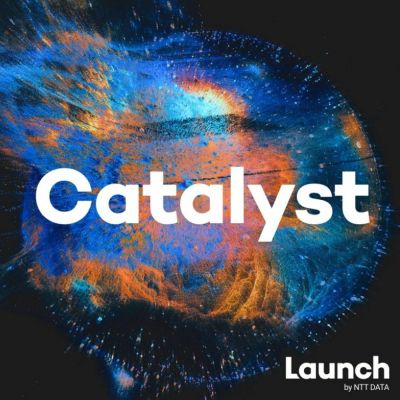Welcome to Catalyst, the Launch by NTT DATA Podcast. Catalyst is an ongoing discussion for digital leaders dissatisfied with the status quo and optimistic about what’s possible through smart technology and great people. In this studio we believe in shipping software over slideware, that fast will follow smooth, and aiming to create digital experiences that move millions is a worthy pursuit.
https://art19.com/shows/catalyst-podcast
episode 117: Making Sense of Capitalism and Ethics: A Conversation with Christian Madsbjerg
Paul and Gina meet up with Christian Madsbjerg to discuss the ideas behind his new book, “Sensemaking: The Power of Humanities in the Age of the Algorithm”
What happens when you take a philosopher out of their element and plunk them into management? How can the business and tech worlds benefit from the humanities? Are we putting too much trust into algorithms and the promise of artificial intelligence?
Courtesy of ReD AssociatesJust because Google does it, doesn’t mean we should do it too: This week Paul Ford and Gina Trapani meet with Christian Madsbjerg, author of Sensemaking: The Power of Humanities in the Age of the Algorithm. Christian ruminates on the limits of the algorithm, bringing human insight into tech and business where artificial intelligence falls short, and the impact of Elon Musk (ed. note: unfortunaltey this interview was recorded before the Met Gala)
4:00 — Christian: “Philosophers are for critique and against suggesting anything. But if you want to make something, you’ve got to suggest something.”
4:55 — Christian: “[Philosophers] see there’s still a way to have integrity in what you’re doing, and still deal with the kinds of things and the way they want to deal with them but in a different world.”
7:15 — Christian: “I suppose philosophy is just making manifestos — what’s sort of underneath us all the time, and that we didn’t think about. What’s happening, at least in the technology space right now, it’s this big reckoning. There’s this big sort of realization that there’s more to this than we thought there was. That’s what a philosopher would do, they would ask, ‘based on what do you say that? What are the underlying assumptions?’”
8:15 — Paul: “A vast number of our conversations… are ultimately about ethics. It’s a constant refrain through the organization. It’s daily and it’s top-to-bottom. Everything we do — maybe also because we deal with so many abstractions and so many requirements from the client — it’s more about preventing unethical situations.”
10:40 — Christian: “It’s often a group of people that aren’t like you and trying to understand what their life is like. ‘What is it like to be them?’ is the basic idea. You can enter their world and you can enter it in a way that can inform that world with whatever you’re making.
13:45 — Christian: “There are things we humans can do that we don’t understand yet. The fact that the machine can beat us in chess doesn’t mean that it can beat us in every other aspect of life, including understanding each other.”
16:20 — Paul: “No one is going to buy a car that sacrifices your life to save another life… We’re about to hit a wall. This is where capitalism and ethics are about to have a very exciting moment around self driving cars.”
16:45 — Christian: “Another way to think about driverless cars is [asking] are they really so attractive? Some people enjoy driving cars […]and that’s worth something as well. Another way of seeing it is that you can look at the people that get slaughtered in traffic every day, but does that really mean that all cars have to be driverless? Isn’t it a magical thing if you think about all the people that step into a car every day and they somehow find their way through these streets and they don’t crash?”
20:50 — Christian: “I wish [Elon Musk] would represent a more interesting dream for eighteen-year-olds than going to Mars.”
21:05 — Christian: “The first process is that in any public institution or any company there is a language that is often native to that place… The first thing is to translate that business language, or the language of the institution, into a human language. So how would human beings think about this? What would be the human phenomenon at the heart of this?”
24:15 — Paul: “So sensemaking as a practice is observing and understanding an organization well enough that you now have a foundation for organizational change, for defining what needs to happen now.”
25:55 — Christian: “The humanities are the place where you can try to exercise the muscle of [understanding] others in the most advanced way… The world of literature and art is a place where you can see human worlds in a way that’s advanced and interesting and often beautiful. So, often, the people that are good at [sensemaking] have a level of sensitivity to it.”
A full transcript of this episode is available.
LINKS- Sensemaking: The Power of the Humanities in the Age of the Algorithm by Christian Madsbjerg
- ReD Associates
- The Moment of Clarity: Using the Human Sciences to Solve Your Toughest Business Problems by Christian Madsbjerg
- Elon Musk wants to colonize Mars with SpaceX
Track Changes is the weekly technology and culture podcast from Postlight, hosted by Paul Ford and Rich Ziade. Production, show notes and transcripts by EDITAUDIO. Podcast logo and design by Will Denton of Postlight.
